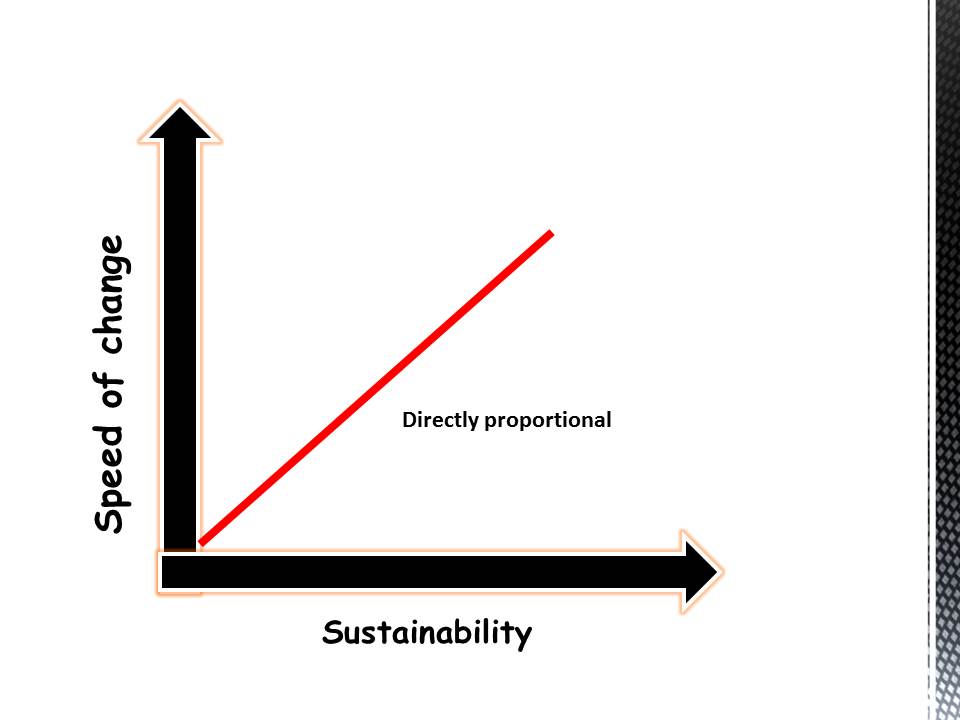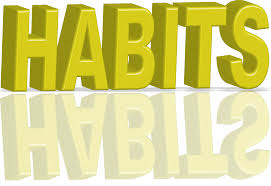Can we make changes fast? And sustain them too??

Can we make changes fast and sustain them too? The question is do we want to? Isn’t the current living better? Well, if you have answered this question earlier and have told yourself that changes are required than the next question is that is there a mechanism or science that will allow us to change fast and sustain these changes?
It is a generally held belief that whatever comes fast goes fast. Whatever changes that happen fast do not sustain for long. Classic example is our weight. Usually it is said that if you lose weight fast, we will have a tendency of regaining it equally fast er. In short, if any changes that we try to make are faster than the ‘required’ time, the assumption is that it will not sustain.
er. In short, if any changes that we try to make are faster than the ‘required’ time, the assumption is that it will not sustain.
My experience and discussions with experts in the field of Performance coaching; medicine; health etc. suggest that speed of change and sustainability can be directly proportional. In other words we can make changes faster and even sustain them.
So does this mean that we can lose weight fast? Does this mean that we can speak in front of a group without problems, faster than we thought? Does this mean that we can effortlessly connect with people? Does this mean we can transition to be good managers from being an individual worker/contributor? Does this mean we can be great leaders from being good managers?
The answer according to experts is a big YES.
Has someone done it earlier?
Few years back, I used to do a small television program for a local cable channel. The purpose of this program was to interview people from all walks of life and get the answers broadly to these two questions.
- What is the secret(s) of their success?

- How did they go about acquiring the mind-set that led to this success?
In this blog I deal with some of the responses that I got to question 2. How did they go about acquiring the mind-set that led to this success?
One of the respondents Nikhil attributed this change to something he calls the ‘Switch’. He shared with us that he was thinking of a change for some time so intensely that one day something ‘switched’ in his mind and he acquired the trait much faster.
Yogita said she has applied the power of two forces to make the changes fast. The two forces she says are ‘Pain’ and ‘Pleasure’ she read these concepts in a book ‘Awaken the giant within’ by Anthony Robbins. She said she associated intense pain to not changing what she wanted to and associating immense pleasure with the changes she was going to make. Every day Yogita reminded this to herself and that according to her fuelled the changes faster than she expected.
Here are the 3 golden rules that experts suggest for changing or acquiring new habits.
- Cue: Trigger for an automatic behaviour to start
- Routine : The behaviour itself

- Reward : The way in which the brain remembers the new pattern in future
We will talk about more on Cue, Routine and Reward later.
We have spoken about 3 things here. “Switch’; ‘Pain-Pleasure’ principle and ‘3 golden rules of habit change’.
Now the bigger question. Can we use these principles to fast forward the changes we aspire for?
Well, it depends.
- Depends on whether we have identified and articulated sharply what we intend to change.
- Depends on how deeply we want to believe in ‘Switch’; ‘Pain – Pleasure’ and 3 golden rules of habit change’ principles.
- Depends on how interested we are to take action around these principles.
This article ia very well- written. I liked the idea of ‘pain’ and ‘pleasure’ association. I will try it out. Trying to make a change, this might be the ticket.
Bhushan, thanks for sharing your thoughts.
– Sameer Joshi
Very well said Bhushan. I liked the simplicity in which you have introduced such a complex subject and the best part is that after reading the article I am left with a need for more…..